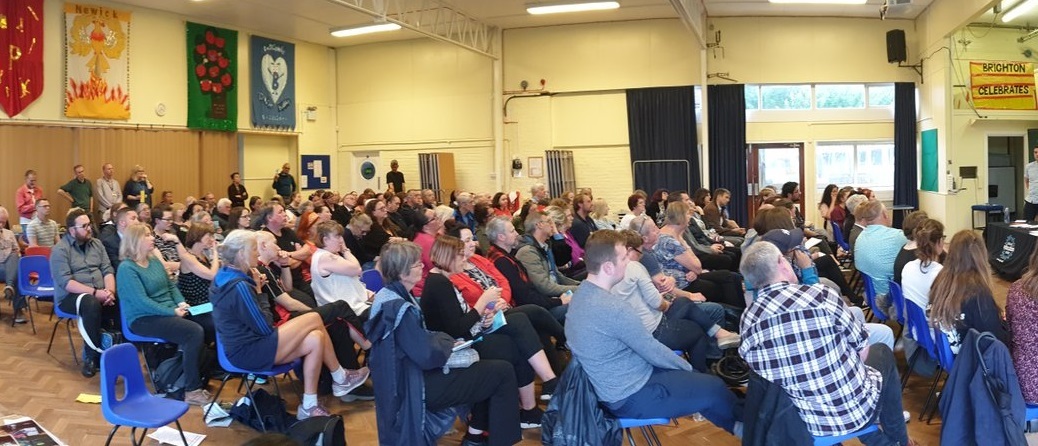
The fight against academisation isn’t simply about performance; it is about protecting our communities
One only needs to type in “academisation of schools” into Google to catch a glimpse of the scale of the fight against academisation across Britain. Communities in Liverpool, Essex, Derby, Greenwich, Lewes, and right here in Moulsecoomb, are rising up against academisation. And for good reason.
When academies were first introduced under the Blair government (with the Learning and Skills Act of 2000), they seemed like a good idea, although it should always have been clear that their underlying premises were fundamentally flawed.
Andrew Adonis, the progenitor of the idea (as Blair’s special advisor on education), thought that giving academy trusts a bit more money to run under-performing state schools than was given to those state schools under local authority control, was what was needed.
In addition he thought that giving them the independence to act in ways that state schools were not allowed to act, such as with regard to the curriculum, the length of the school day, admissions policy, and hiring, would give trusts the tools to transform under-performing state schools.
But it is not clear that any of these on their own could improve a school’s performance in the right way.
Academy trust leaders and board members have been criticised for taking huge salaries, choosing their students in such a way as to skew performance in their favour, all while there has been little evidence that academies perform better than mainstream schools.
According to a 2018 study by the Sutton Trust, almost half of academy leaders admitted that they didn’t believe that academisation had a positive impact in the classroom.
But the fight against academisation is about more than just the performance of schools. Even if we assumed that an academy trust could improve the performance of a school like Moulsecoomb primary, it would still not mean that it is a good thing for that school to be handed to an academy trust.
For one thing, where Moulsecoomb Primary currently admits a diverse cadre of students in terms of background and capability, an academy trust would not be obliged to do so.
In the event that they don’t admit less capable students or students from minority or working-class backgrounds, many children would be left behind in the process.
Furthermore, parents like to know that the teachers and teaching assistants that spend hours daily with their kids love and care for their kids, and that they are qualified to deal with children.
Since a change of rules in 2012, academies have been exempt from the mandate state schools have to hire teachers with Qualified Teacher Status (QTS). Evidence suggests that academies do hire unqualified teachers, and that they also use this hiring independence to bust unions.
The fight against academisation is about more than just the performance of schools; it is about community. It is about whether families, for whom a local school is the centre of their community, can continue to trust that their kids are getting the best attention they can get.
This is precisely why parents, teachers and the community around Moulsecoomb are fighting the planned academisation of their local primary school.
As Becky, one of the parents leading the campaign, told Brighton and Hove News: “I see how hard the staff work and that they genuinely care about our children. I know my children are happy at school and learning well. My youngest child has a lot of extra support at school, and because of this, his progress has been astounding.
“Our school is inclusive of all children, whatever the needs, abilities and backgrounds are. Just pause and think about that and the amazing job the school are already doing. There are strong feelings amongst parents, staff, and the local community against this. This simply cannot happen and as a community, we will fight this.”
Residents from across the city must rally to the parents, teachers and community at Moulsecoomb.
This fight is not just about protecting a school. It is about preserving what little sense of community we have left. That sense of community is just as integral to a child’s proper development as learning arithmetic.
If the government wants to help the kids, they should stop cutting school budgets and increase them instead.
They should work with parents and teachers on a plan to improve the performance of Moulsecoomb Primary. Academisation is certainly not the answer.
Johnbosco Nwogbo is an activist involved with several social movements in the city and a PhD researcher in philosophy at Sussex University.








